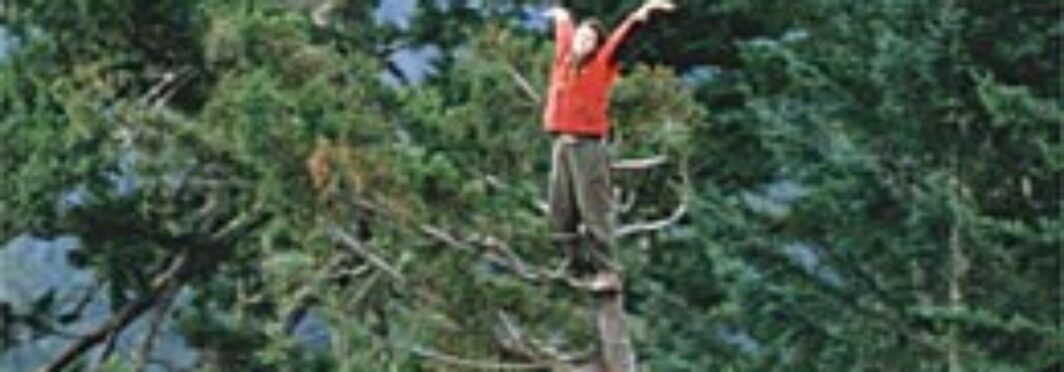A documentary filmmaker contacted me a few weeks ago. She’s making a film about Julia “Butterfly” Hill and the two-plus years she lived at the top of a redwood in California’s Humboldt County to keep it from being cut down.
Since I ghostwrote Julia’s book The Legacy of Luna: The Story of a Tree, a Woman and the Struggle to Save the Redwoods, which became a national bestseller, she wanted to interview me. Right off the bat, she asked how I had gotten involved with the project.
I explained that I had learned about Julia over a lunch with a book editor, Liz Perle, who was my oldest friend.
“How much would you charge me for a rewrite?” Liz asked, knowing that I needed work since I had moved to the Bay Area with no warning to help care for my mom who had suffered a cerebral hemorrhage.
“A rewrite of what?” I answered.
I was intrigued by Liz’s answer but told her there was no way I could give her a price until I knew what I was working with.
She messengered over the pages that afternoon and I read them as soon as they arrived.
“You don’t need a rewrite,” I said when I phoned that evening. “You’ve got nothing here.”
“I know. I’m f***ed.”
By taking on the job, I basically put myself in that same category, since the deadline was just ten weeks away, and I still had to help care for my mother.
I read up on Julia and pulled together an outline within a day, which Liz and I then fine-tuned that night. At that point, I had to figure out how to ghostwrite a book with a person I couldn’t sit down with, since she was in a tree, and I was spending eight hours a day in my mom’s hospital room. And I had to convince her to give me her best even though she wanted to work with the initial writer she had hand-picked rather than with me.
As it turns out, that would be my first taste of working as a writing coach. I explained what I needed in a letter to Julia and her manager when I sent the outline. Julia had already laid out her beliefs and provided extensive political analysis in the prior draft and interviews. What we needed now, on a scene-by-scene basis, were four things:
· A blow-by-blow account of the action–what happened, who said what (Julia hosted visitors in the tree).
· Physical details using all five senses. “Julia’s descriptions of the huge storm during her first winter, and of the squirrels and insects that next spring are absolutely lyrical, “I wrote. “They transport you. You can see and hear everything she talks about so vividly. We need that kind of powerfully evocative description throughout the book. I need to know what things (from the forest, to the tree, to everything else that happens) look like. What sounds are involved? What smells? How do things feel to the touch? Is taste a factor? We want the reader to be able to feel like they’re right there with Julia, experiencing what she experiences right alongside her.”
· People set-ups, so we got to know people who aren’t just passing figures. “We need to know what they look like, how they move, how they act, how they sound, what their background/story is, when and how Julia first met them, etc…” I specified. “Again, lots of details so we can set the scene.”
· Julia’s feelings and emotions at every single turn–in every scene.
From then on, we worked together like a seasoned figure skating pair. At night, huddled in her mummy bag on a platform built into the tree’s branches 180-feet in the air, Julia would relive each chapter aloud. The tapes that captured her textured, detailed recollections made their way down the hill and to a transcriber thanks to the volunteers who snuck past the lumber company lines to bring her food and supplies and pack out her waste.
The day after she’d finished the tape for that particular chapter, Julia and I would talk out the next. And as she dictated again, I wrote.
My memory tells me that I cranked out a chapter a week, but since I delivered 13 chapters along with an introduction and an epilogue on deadline, the pace was more like a chapter and a half a week.
Even though I was still spending eight hours a day at the hospital and writing the book that would become a national bestseller faster than I thought possible, I climbed Luna, despite an aversion to heights, to visit with and interview Julia in person. But that’s another story for another day.



Sorry, comments are closed for this post.